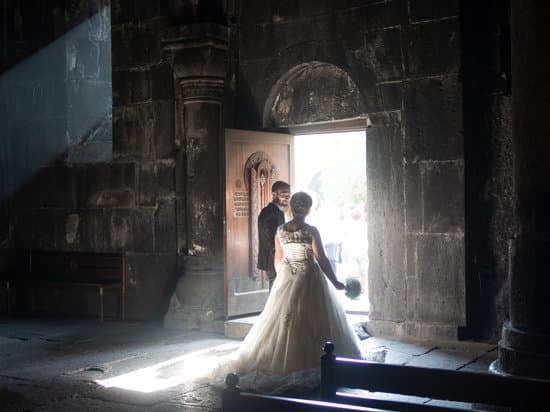Are you interested in learning how to be ordained for a wedding? Becoming ordained is an essential step for individuals who want to officiate weddings and legally marry couples. Understanding the process of ordination, legal requirements, and responsibilities of an officiant is crucial for anyone considering this path. In this article, we will delve into the world of ordination for weddings, exploring its significance and the various paths to becoming ordained.
Ordination for a wedding is the process by which an individual receives the authority to perform marriage ceremonies. This legal recognition allows them to solemnize marriages and sign marriage certificates. Whether you are a friend or family member asked to officiate a loved one’s wedding, or someone looking to become a professional wedding officiant, understanding the ins and outs of ordination is vital.
In the following sections, we will explore the importance of being ordained for a wedding, as well as the legal requirements for officiating a marriage ceremony. We will also discuss different paths to ordination, such as online ordination services, religious institutions, and local government offices. Finally, we will provide tips on choosing the right ordination path for you and guide you through the process of applying, training, and obtaining certification as an ordained wedding officiant.
The Importance of Being Ordained for a Wedding
Becoming ordained for a wedding is a significant step for anyone who wishes to officiate at weddings and other ceremonies. The importance of being ordained lies in the legal and ethical responsibilities that come with solemnizing a marital union. Ordination grants individuals the authority to legally officiate at weddings, allowing them to play a pivotal role in one of the most important moments in a couple’s life.
Being ordained for a wedding is not just about obtaining the legal authority to perform the ceremony. It also signifies a commitment to uphold the sanctity of marriage and support couples as they embark on this new chapter of their lives together. As an ordained officiant, you are entrusted with the responsibility of guiding couples through their vows and ensuring that their union is recognized in the eyes of the law.
Furthermore, being ordained for a wedding provides individuals with the opportunity to bring their personal touch to the ceremony, making it more meaningful and heartfelt for the couple and their loved ones. Whether it’s incorporating personalized vows or creating a unique ceremony structure, being ordained allows individuals to facilitate a memorable and special occasion for all involved.
Additionally, by being properly ordained, individuals can offer guidance and support to couples throughout the entire wedding process, from planning to post-ceremony paperwork.
Understanding the Legal Requirements for Officiating a Wedding
Before becoming ordained to officiate a wedding, it is crucial to understand the legal requirements in the location where the ceremony will take place. Each state or country has its own set of rules and regulations regarding who can legally perform a wedding ceremony. It’s important to research and familiarize yourself with these requirements to ensure that your ordination will be recognized as valid.
In the United States, most states recognize online ordinations from religious organizations as legal and valid for performing weddings. However, some states have specific registration or licensing requirements for out-of-state officiants. It is essential to check with the local county clerk or registrar’s office where the wedding will occur to confirm whether there are any additional steps you need to take before officiating a wedding.
For international weddings, it’s equally important to understand the legal requirements of the specific country where the ceremony will be held. Some countries may have strict regulations on who can legally perform a marriage ceremony, requiring thorough documentation and application processes for foreign officiants. Researching and complying with these regulations are essential for ensuring that your ordination is legally recognized in that particular country.
Ultimately, understanding the legal requirements for officiating a wedding is an essential step in becoming ordained. By doing so, you can ensure that you are fully prepared and compliant with all necessary regulations before taking on the responsibility of officiating a marriage ceremony.
| Legal Requirements | Eu |
|---|---|
| United States | Most states recognize online ordinations as valid. |
| International weddings | Some countries have strict regulations for foreign officiants. |
Different Paths to Ordination
Becoming ordained to officiate a wedding can be an important and fulfilling role for those who have been asked to perform this duty. There are several different paths one can take to become ordained, including online resources, religious institutions, and local government. Each path has its own advantages and considerations, so it’s important to carefully weigh your options before making a decision.
Online ordination is a popular choice for many individuals seeking to become ordained for a wedding. Websites such as the Universal Life Church and American Marriage Ministries offer easy online ordination processes that can be completed in a matter of minutes. This option provides flexibility and convenience, making it a great choice for those with busy schedules or limited access to traditional religious institutions.
Religious institutions also offer ordination for weddings, often requiring some form of training or education before granting official status. It’s important to consider the specific requirements of each denomination or religious organization when pursuing this path to ordination. Some larger religious institutions may have more stringent requirements, while smaller organizations may offer a more accessible and personalized approach to ordination.
Local government offices also provide avenues for ordination, particularly for individuals seeking legal recognition to officiate weddings. Just like with religious institutions, it’s crucial to research the specific laws and regulations governing marriage officiation in your area before pursuing this option. Depending on your location, there may be additional steps or requirements you need to fulfill before being recognized as an ordained wedding officiant.
Ultimately, the path you choose for ordination should align with your personal beliefs, values, and long-term goals as an officiant. It’s important to carefully consider each option and weigh the potential benefits and drawbacks of each path before making a decision on how to be ordained for a wedding.
- Online ordination
- Religious institution
- Local government
Tips for Choosing the Right Ordination Path for You
When it comes to becoming ordained for a wedding, there are various paths you can take to achieve this important milestone. Whether you choose an online ordination, seek ordination through a religious institution, or pursue local government ordination, it’s essential to carefully consider which option aligns with your beliefs, values, and goals.
Consider Your Beliefs and Values
One of the most crucial factors to consider when choosing the right ordination path for you is your personal beliefs and values. If you have strong religious convictions, seeking ordination through a religious institution may be the ideal choice for you. On the other hand, if you prefer a more secular approach, pursuing online or local government ordination could be a better fit.
Evaluate Training and Support Offered
Another important consideration when choosing an ordination path is the training and support that each option provides. Some online ordination programs offer comprehensive training materials and ongoing support for their ordained ministers. Religious institutions may also provide extensive training and mentorship opportunities. Local government ordination processes often include specific requirements and guidance for officiating weddings within their jurisdiction.
Assess Legal Requirements
Before deciding on an ordination path, it’s crucial to assess the legal requirements for officiating weddings in your desired location. Each state or country may have its own regulations regarding the validity of ordained ministers and their authority to perform marriage ceremonies. Make sure to research the legal implications of each ordination path before making your decision.
By carefully considering your beliefs, evaluating training and support options, and assessing legal requirements, you can choose the right ordination path that aligns with your values and prepares you to fulfill your role as a wedding officiant with confidence. Whether you pursue online, religious institution-based, or local government ordination, finding the right fit will enhance your ability to create meaningful and memorable wedding experiences for couples on their special day.
The Process of Becoming Ordained for a Wedding
Becoming ordained for a wedding is a process that involves several steps, including the application, training, and certification. Whether you choose to pursue ordination online, through a religious institution, or local government, it’s important to understand the requirements and responsibilities of being an ordained wedding officiant.
Application Process
The first step in becoming ordained for a wedding is to complete the application process. This typically involves providing personal information such as your full name, address, and contact details. Some ordination programs may also require you to answer questions about your beliefs and intentions for seeking ordination.
Training Requirements
Once your application has been approved, you may need to undergo some form of training or education. This can vary depending on the ordination program you choose. Some online ordination platforms offer training courses that cover the legal aspects of officiating weddings, as well as guidance on creating personalized ceremonies.
Certification Process
After completing the required training, you will likely need to be certified as an ordained wedding officiant. This may involve passing an exam or meeting other specific requirements set forth by the ordaining body. Certification serves as formal recognition of your ability to legally officiate weddings in your jurisdiction.
Ensuring that you have completed all necessary steps for becoming ordained for a wedding is crucial in order to perform ceremonies legally and responsibly. Understanding the application process, training requirements, and certification process will help guide you in selecting the right path to become an ordained wedding officiant.
Responsibilities and Duties of an Ordained Wedding Officiant
As an ordained wedding officiant, you have the important responsibility of overseeing and leading a couple’s wedding ceremony. This role goes beyond just being a presence at the event; it requires a level of understanding, preparation, and professionalism in order to create a memorable and meaningful experience for the couple and their guests. Below are some key responsibilities and duties that come with being an ordained wedding officiant:
- Preparation: One of the most crucial aspects of being an ordained wedding officiant is preparing for the ceremony. This includes meeting with the couple to discuss their vision for the ceremony, writing and customizing the script, and rehearsing as needed. A well-prepared officiant can help alleviate stress for the couple and ensure that their special day runs smoothly.
- Legal Compliance: It is important for an ordained wedding officiant to be knowledgeable about the legal requirements for performing marriages in their jurisdiction. This may involve obtaining any necessary paperwork or permits, understanding marriage license regulations, and adhering to state or local laws regarding who can legally marry couples.
- Creating a Meaningful Ceremony: As an ordained wedding officiant, you play a significant role in shaping the tone and atmosphere of the ceremony. From delivering opening remarks to leading exchange of vows and rings, your ability to connect with the couple and convey their love story can make a lasting impression on everyone present.
In addition to these primary responsibilities, it’s also essential for an ordained wedding officiant to conduct themselves professionally throughout all stages of working with a couple. This includes maintaining open communication, respecting confidentiality, and upholding ethical standards as they guide couples through this significant milestone in their lives.
Whether you choose to become ordained online, through a religious institution, or local government, being aware of your duties as an officiant will help you navigate through each step of the process effectively. Ultimately, serving as an ordained wedding officiant is about helping couples celebrate their love in a way that is personal and true to their unique relationship.
Resources and Support for Newly Ordained Wedding Officiants
Becoming ordained to officiate weddings is a significant step for anyone wanting to play a crucial role in a couple’s special day. Once you are ordained, it is essential to have the necessary resources and support to ensure that you can fulfill your duties effectively and confidently.
One of the most important resources for newly ordained wedding officiants is access to guidance and training materials. These resources can come in the form of online courses, instructional videos, or written materials that cover topics such as creating a ceremony script, understanding marriage laws, and managing pre-wedding jitters. Having these materials at your disposal can help you feel more prepared and equipped to provide a memorable and meaningful wedding experience for the couple.
In addition to training materials, it is helpful for newly ordained wedding officiants to have access to a supportive community. This can include online forums, social media groups, or local meetups where you can connect with other officiants, share experiences, ask for advice, and offer support to one another. Building relationships with other officiants can be invaluable as you navigate the responsibilities and challenges that come with leading wedding ceremonies.
| Resources | Support |
|---|---|
| Access to guidance and training materials | Online forums, social media groups |
| Online courses, instructional videos | Connect with other officiants |
Conclusion
In conclusion, becoming ordained for a wedding can be a fulfilling and rewarding experience. The role of an ordained wedding officiant is not only significant in the eyes of the couple getting married, but it also carries legal responsibilities. Whether you choose to become ordained online, through a religious institution, or local government, the process will require dedication and commitment.
It is important to understand the legal requirements for officiating a wedding in your specific area before pursuing ordination. Once ordained, the responsibilities and duties of an officiant are crucial to ensure that the ceremony runs smoothly and that all necessary paperwork is completed. Additionally, newly ordained wedding officiants should seek out resources and support to help them navigate their new role with confidence.
Ultimately, being ordained for a wedding allows individuals to play a central role in one of the most important moments in a couple’s life. Choosing the right path to ordination involves careful consideration to ensure that it aligns with your beliefs and values. By following the proper process of application, training, and certification, anyone can become an ordained wedding officiant and help couples create lasting memories on their special day.
Frequently Asked Questions
What Is Required to Officiate a Wedding in Virginia?
In Virginia, to officiate a wedding, you must be authorized by a religious organization or be a judge, justice of the peace, or magistrate. There are no registration or licensing requirements for wedding officiants in Virginia.
What Is Required to Officiate a Wedding in Texas?
To officiate a wedding in Texas, you must be an ordained minister, priest, rabbi, or other authorized religious leader. You can also become a temporary officiant through the Texas Department of Criminal Justice if the couple is incarcerated.
What Does It Mean to Be Ordained for a Wedding?
Being ordained for a wedding means that you have been granted the authority to perform marriage ceremonies by a religious organization or through another legal process. This allows you to legally marry couples according to the laws of the jurisdiction in which you are performing the ceremony.

I have been involved in marriages for over 20 years helping couples and singles understand more about them.





